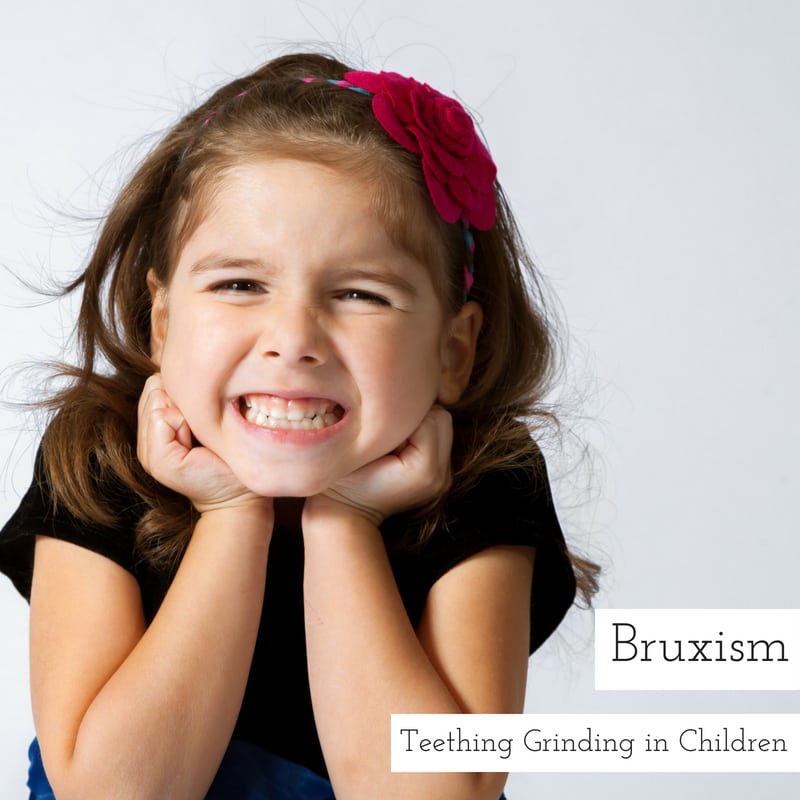Though some children may grind or clench their teeth while awake, bruxism is often an issue when children sleep.

Bruxism—gnashing, grinding, or clenching of teeth—is common among children. In fact, twenty to thirty percent of all children experience it. Bruxism is a big part of what pediatric dentists help children with. Though some children may grind or clench their teeth while awake, bruxism is often an issue when children sleep. Children may not be aware of it unless someone hears them doing it.
Possible Causes
If your child experiences bruxism, especially while sleeping, it may be the result of anxiety, stress, hyperactivity, or how the upper and lower teeth contact each other.
What to Look For
Check your child occasionally while they sleep to listen and watch for indications of grinding, gnashing, or clenching. Ask your child if he or she is having headaches, earaches or a sore jaw. Ask if your child is experiencing pain when chewing. They may also be tired from a lack of sufficient sleep.
What You Should Do
Often, bruxism is minor, and children eventually outgrow it without it having long-term effects on their health. Over a long period, however, bruxism can lead to other issues including teeth enamel loss or sleep disorders such as apnea.
If your child experiences bruxism, and you suspect it is stress-related, talk to him or her about what may be causing the stress. Then plan how to relieve that stress or hyperactivity before bedtime. Consider, for example, playing soothing music, reading a book, or having your child take a warm shower.
If that doesn’t help, consult your pediatric dentist for an accurate diagnosis. There may be a simple reason, such as poorly-aligned teeth. It is not unusual for children to require a custom-fitted mouthguard which can prevent cracking, breaking, or premature teeth wear.